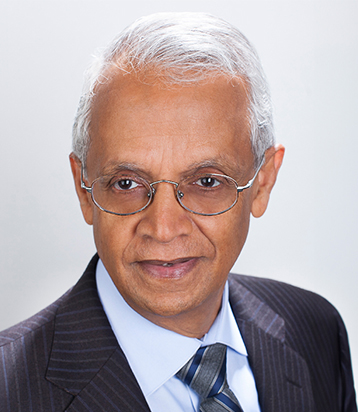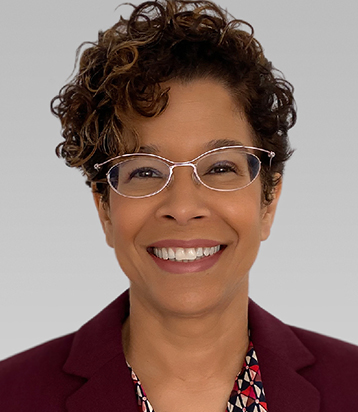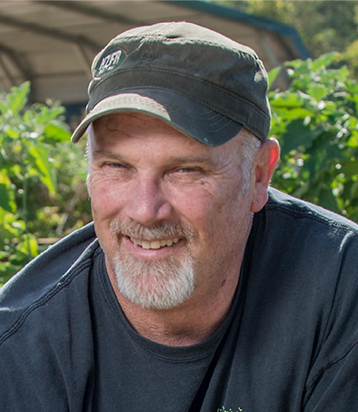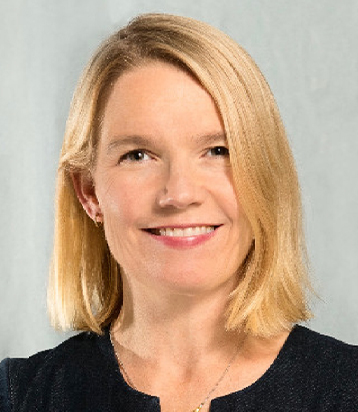Broadening Participation in Undergraduate Climate Education 2023
Past Event: SENCER West Coast Regional Meeting, Sept. 14–15, 2023
Sponsored by The Hixon Center for Climate and the Environment and the Office of Community and Civic Engagement
The world is on track for at least a 2℃ global average temperature increase by 2100 based on international agreements, pledges, and targets—and even optimistic scenarios of current pledges result in an estimated 1.8C of warming, all despite the 2015 Paris agreement goal of keeping the global average temperature increase below 1.5℃. The UN Intergovernmental Panel on Climate Change has released their sixth Assessment Report describing the impacts of warming beyond 1.5℃, which will touch every aspect of our lives. And yet K-12 education is only just beginning to adopt climate literacy into its standard curricula, and the inclusion of climate change in higher education, through core curricula, is lagging.
Despite these shortcomings, there is a growing effort to expand climate education in higher education and to incorporate climate beyond the earth sciences. Faculty understand that, regardless of field, our graduates will inherit a personal and professional landscape that is fundamentally changed from the world today. Their education should prepare them for this new world.
This one-day conference convened climate experts, teacher-scholars from other disciplines and community partners to discuss the future of climate education for undergraduates. The goal of the conference is to expand the number of faculty involved in climate education and for those already involved to deepen their understanding of and appreciation for the strengths that multiple perspectives bring to addressing the challenges of climate. A theme throughout the conference was broadening participation in climate education on our campuses and in our communities.
Conference Keynote Speakers and Facilitators

V. Ram Ramanathan
University of California at San Diego and Cornell University
V. Ram Ramanathan is emeritus professor at the University of California at San Diego and Cornell University Climate Solutions Scholar at the College of Agriculture and Life Sciences, Cornell University. He is the founding chair of University of California’s Bending the Curve: Climate Education For All, a multi-disciplinary undergraduate curriculum on climate change solutions taught at many campuses around the world. Ramanathan discovered the greenhouse effect of chlorofluorocarbons and other heat trapping pollutant gases. His findings on super pollutants (methane, HFCs, ozone and black carbon) have led to several successful climate mitigation actions worldwide, including the formation of Climate and Clean Air Coalition by the United Nations to mitigate these pollutants. He was the founding chair of University of California’s Bending the Curve: Climate solutions education protocol and taught at many campuses around the world. He served as the science advisor for Pope Francis’ Holy See delegation to the UN’s 2015 Paris Climate Conference. He was listed as Foreign Policy Magazine’s Top 100 Global Thinkers of 2014 , named 2013 Champion of Earth by the United Nations and was awarded the 2021 Blue Planet Prize. He is an elected member to the US National Academy of Sciences, the Pontifical Academy of Science (council member), The American Philosophical Society and the Royal Swedish Academy of Science.

Crystal Chissell
Executive Director, Global Council for Science and the Environment
Crystal Chissell is the executive director of the Global Council for Science and the Environment (GCSE). Prior to joining GCSE, Chissell served as vice president of operations for two climate solutions nonprofits, Project Drawdown and Project Regeneration and also served as senior director of partnerships for Project Drawdown. In those roles she has worked with government, business and academic organizations to identify, analyze and implement a diverse portfolio of effective strategies for reversing climate change from local to global scales. Her state and local government experience includes serving as chief solicitor of the Baltimore City Law Department and assistant attorney general for the Maryland Environmental Service. Chissell earned a B.A. from Howard University, an M.S. in environmental science from Johns Hopkins University, an MBA from the University of San Francisco and a J.D. from the University of Maryland School of Law.

Mark Stemen
California State University, Chico
Mark Stemen is a professor of environmental studies at California State University, Chico, where he teaches courses in sustainability and civic engagement. Known to his students as “Dr. Mark,” he is well-recognized on the campus for his work with students and the community on issues of sustainability and climate change. He and his students recently assisted in preparing a climate vulnerability assessment for the city of Chico and Butte County that will allow them to integrate future climate scenarios into their respective general plans. In 2008, Stemen was named “Sustainability Champion” at the seventh annual California Higher Education Sustainability Conference, and he is a co-founder (with his students) of the This Way to Sustainability Conference at CSU, Chico. In spring 2022, Stemen facilitated the inaugural CSU Faculty Learning Community in Teaching Climate Change and Resilience (FLC in TCCR). With participation from 62 faculty from six CSU campuses representing over 30 disciplines, the FLC ultimately redesigned 75 classes to offer greater engagement in climate change. The FLC was awarded the Campus Sustainability Achievement Award by the Association for the Advancement of Sustainability in Higher Education and was highlighted in the Chronicle of Higher Education, as part of their Future Trends in Higher Education for 2023. Stemen will host the FLC in TCCR again during spring 2024.

Krista Hiser
Senior Lead and Advisor for Sustainability Education
Krista is the Senior Lead and Advisor for advancing Sustainability Education and the Key Competencies Framework. In her role she works with partners at Arizona State University, and GCSE’s Sustainability Education Community of Practice, as well as stakeholders across higher education. She has been Senior Fellow for Community Colleges at GCSE since 2018. Formerly the director of the University of Hawaiʻi System Center for Sustainability Across the Curriculum, she is on professional leave from Kapiʻolani Community College, where she is a Professor of Composition & Rhetoric with an emphasis on sustainability curriculum, climate change education, and community resilience. She received her doctoral degree in Educational Administration from the University of Hawaii at Mānoa, and holds a master’s degree in English Composition from San Francisco State University and a bachelor’s in English from the University of Iowa.
Information and Resources from Presenters and Attendees
Climate in Any Course you Teach
Prof. Mark Stemen, California State University, Chico
This session gave attendees an opportunity to make progress toward inclusion of climate topics in their existing courses. Prof. Stemen recommends the following resources for anyone interested in adding climate to their courses:
- Project Drawdown
- An Existential Toolkit for Climate Justice Educators
- All We Can Save
- Generation Dread
- Universities on Fire
- No More Fairy Tales
- To Save Everything, Click Here
- Field Notes, from Krista Hiser
You may also wish to review the resources under Teaching Climate Change & Resilience (a Faculty Learning Community) as well as the longer compilation of resources here.
Resources from attendees
Many attendees shared their favorite resource(s) related to climate education. Here is a selection of those resources:
- The Seed Center. (2018). “The Community College Green Genome Framework: Integrating Sustainability and Clean Technology Workforce Development Into an Institution’s DNA. A National Guide and Institutional Self-assessment Created by Community Colleges, For Community Colleges.
- Beyond Climate Breakdown. An abbreviated description of Dr. Peter Friederici’s framework for thinking about how story framings affect our understanding of the climate crisis.
- TCNJ Heat Island and Air Quality Project (a work in progress) provided by Alexis L. Mraz
- Teaching STEM Through Climate Justice and Civic Engagement, Doucette, Morrison, Price, and Shaver
- Seventh College Synthesis Program
- Climate Headquarters at San Francisco State University and the Certificate in Climate Change Causes, Impacts, and Solutions
- The Energize Colleges Program from SEI
- Climate-related hazards are affecting U.S. communities every day. View real-time statistics and maps documenting where people, property, and infrastructure may be exposed to hazards. https://resilience.climate.gov/
- U.S. Climate Resilience Toolkit – https://toolkit.climate.gov/
- Readout of the White House Forum on Campus and Community-Scale Climate Change Solutions, March 2023
Contact Details
For more information, please reach out to the organizers at climateeducation-l@g.hmc.edu. Conference organizers are Lelia Hawkins, director of the Hixon Center for Climate and the Environment; Karl Haushalter, chair, Department of Chemistry; and Gabriela Gamiz, director of civic and community engagement.
Meet the Climate Education Conference Co-Sponsors
Harvey Mudd College’s Hixon Center for Climate and the Environment
The Hixon Center for Climate and the Environment is the home for all campus efforts related to climate, sustainability, and environmental studies, including course development, faculty-led scholarship, and special events.
To address the multifaceted challenges presented by our changing climate, the center is actively recruiting faculty for joint appointments across all departments. This will ensure our program is reflective of the interdisciplinary nature of the climate crisis. Regardless of a student’s aligned discipline, they will find an avenue to apply their passion and make an impact on society.
Read and learn more about the Hixon Center here.
Harvey Mudd College’s Office of Civic and Community Engagement
The Office of Civic and Community Engagement (OCCE) works collectively with our campus and the broader community to educate and empower one another to be informed and engaged members of a community that makes meaningful contributions to society.
OCCE encourages the campus community to develop mutually meaningful and reciprocally enriching relationships with communities both locally and globally. OCCE achieves this by supporting students, faculty and staff with advice and guidance; community partnership communication; logistical and transportation resources; and funding for projects and (co)-curricular (re)design.
Read and learn more about OCCE here.
National Center for Science & Civic Engagement’s (NCSCE’s) Science Education for New Civic Engagement and Responsibilities (SENCER)
NCSCE is a national organization that supports a community of educators throughout the STEM learning ecosystem, from K-12 and undergraduate education, to “free-choice” and informal education. Through professional development programs they support cross-sector collaboration, curriculum and course design, assessment, research, and mentoring. They help educators in and outside the classroom make connections between the content they teach and real world issues of civic importance. Their goal is to empower learners by showing them that STEM education is civic education; and what we learn today can help solve some of the biggest problems of tomorrow. Read and learn more about NCSCE here.
SENCER is NCSCE’s signature program. SENCER courses and programs strengthen student learning and interest in science, technology, engineering, and mathematics (STEM) by connecting course topics to issues of critical local, national, and global importance.
Students and faculty report that the SENCER approach makes science more real, accessible, “useful,” and civically important. For history, resources, the SENCER Course Model Series, and lots more go to SENCER.net.